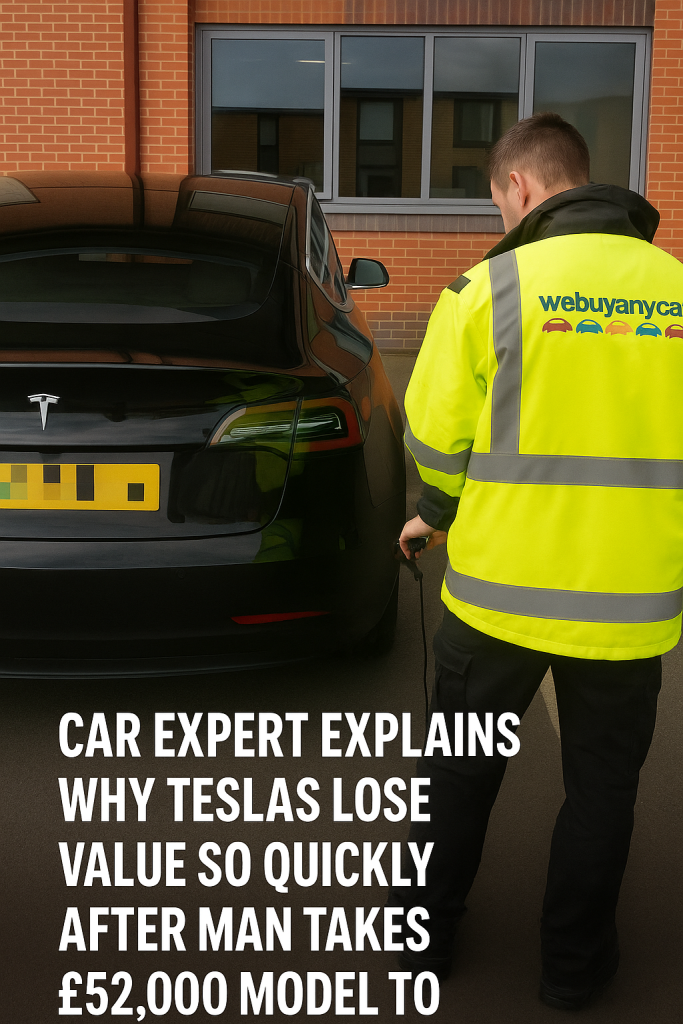A recent transaction involving a Tesla Model S, originally purchased for around £52,000, has caught the attention of car enthusiasts and industry experts alike after the owner attempted to sell the vehicle to WeBuyAnyCar, a popular car buying service in the UK. What happened next was unexpected and has raised important questions about the rapid depreciation of electric vehicles (EVs), particularly Teslas.
The seller, hoping to recoup a significant portion of the car’s value, found himself facing a much lower offer than anticipated. According to experts, the depreciation rate for Teslas, especially models from a few years back, is historically steeper than many petrol or diesel vehicles, despite Tesla’s reputation for innovation and holding value.
Why are Teslas losing value so quickly? Industry specialists from HHLI Car Experts broke down the factors that contribute to the swift loss in resale value. One key component is the fast-paced evolution of EV technology. Newer Tesla models now come with enhanced battery performance, longer range, and updated software capabilities, making older models less attractive in comparison. Additionally, the supply of Used Teslas has increased with more people upgrading or selling, which also pressures resale prices downward.
Another element influencing this depreciation is government incentives. When some owners bought Teslas initially, they benefited from substantial subsidies and grants which inflated new car prices and made initial purchases more affordable. But these incentives are gradually being withdrawn, affecting perceived value on the used market. Potential buyers may be less willing to pay a premium for an older Tesla without those financial benefits, further pushing prices down.
The man’s experience with WeBuyAnyCar highlights the challenges of selling a Tesla through third-party services that rely on automated valuation models. These algorithms prioritize market trends and comparable sales data, which currently reflect the downward trajectory of Tesla values. This scenario serves as a cautionary tale for EV owners who might overestimate the resale value of their vehicles based on Tesla’s brand strength alone.
“We often see EVs, especially those from early production years, depreciate faster than conventional cars due to rapid advancements in battery tech and changing consumer perceptions,” explained a HHLI car expert involved in analyzing the market. “The luxury EV market is still maturing, and pricing established models with older specifications often results in tougher negotiations and lower offers.”
This story also illustrates a broader shift in the automotive market where electric vehicles, despite their eco-friendly appeal and lower running costs, face unique valuation challenges. While Teslas remain popular, their residual values are increasingly variable and dependent on model year, battery health, mileage, and local incentives.
For prospective EV sellers, the takeaway is clear: research current market conditions carefully and set realistic expectations for resale value. As the electric vehicle market evolves, transparency around depreciation trends will be critical for consumers to make informed decisions.
The man’s unexpected sale experience has ignited social media chatter, with many sharing tales of their own Tesla depreciation surprises. It remains to be seen whether manufacturers or service providers will address these valuation issues more directly, but for now, sellers should be prepared for offers that may not match the original purchase price.



